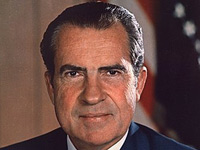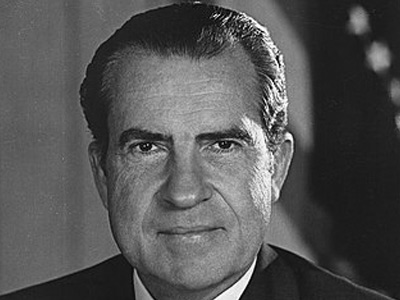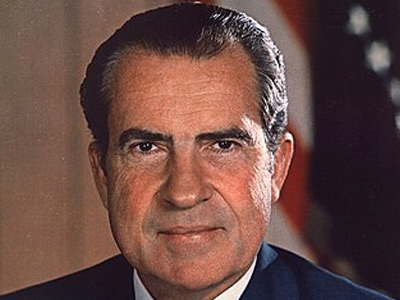Post-presidency (1974–1994)
Following his resignation, the Nixons flew to their home La Casa Pacifica in San Clemente, California. According to his biographer, Jonathan Aitken, "Nixon was a soul in torment" after his resignation. Congress had funded Nixon's transition costs, including some salary expenses, though reducing the appropriation from $850,000 to $200,000. With some of his staff still with him, Nixon was at his desk by 7:00am -with little to do. His former press secretary, Ron Ziegler, sat with him alone for hours each day.
Nixon's resignation had not put an end to the desire among many to see him punished. The Ford White House considered a pardon of Nixon, even though it would be unpopular in the country. Nixon, contacted by Ford emissaries, was initially reluctant to accept the pardon, but then agreed to do so. Ford insisted on a statement of contrition, but Nixon felt he had not committed any crimes and should not have to issue such a document. Ford eventually agreed, and on September 8, 1974, he granted Nixon a "full, free, and absolute pardon", which ended any possibility of an indictment. Nixon then released a statement:
I was wrong in not acting more decisively and more forthrightly in dealing with Watergate, particularly when it reached the stage of judicial proceedings and grew from a political scandal into a national tragedy. No words can describe the depth of my regret and pain at the anguish my mistakes over Watergate have caused the nation and the presidency, a nation I so deeply love, and an institution I so greatly respect.
In October 1974, Nixon fell ill with phlebitis. Told by his doctors that he could either be operated on or die, a reluctant Nixon chose surgery, and President Ford visited him in the hospital. Nixon was under subpoena for the trial of three of his former aides—Dean, Haldeman, and John Ehrlichman—and The Washington Post, disbelieving his illness, printed a cartoon showing Nixon with a cast on the "wrong foot". Judge John Sirica excused Nixon's presence despite the defendants' objections. Congress instructed Ford to retain Nixon's presidential papers—beginning a three-decade legal battle over the documents that was eventually won by the former president and his estate. Nixon was in the hospital when the 1974 midterm elections were held, and Watergate and the pardon were contributing factors to the Republican loss of 43 seats in the House and three in the Senate.
HISTORY

RESOURCES
This article uses material from the Wikipedia article "Richard Nixon (1913-1994)", which is released under the Creative Commons Attribution-Share-Alike License 3.0.
© Stories Preschool. All Rights Reserved.











